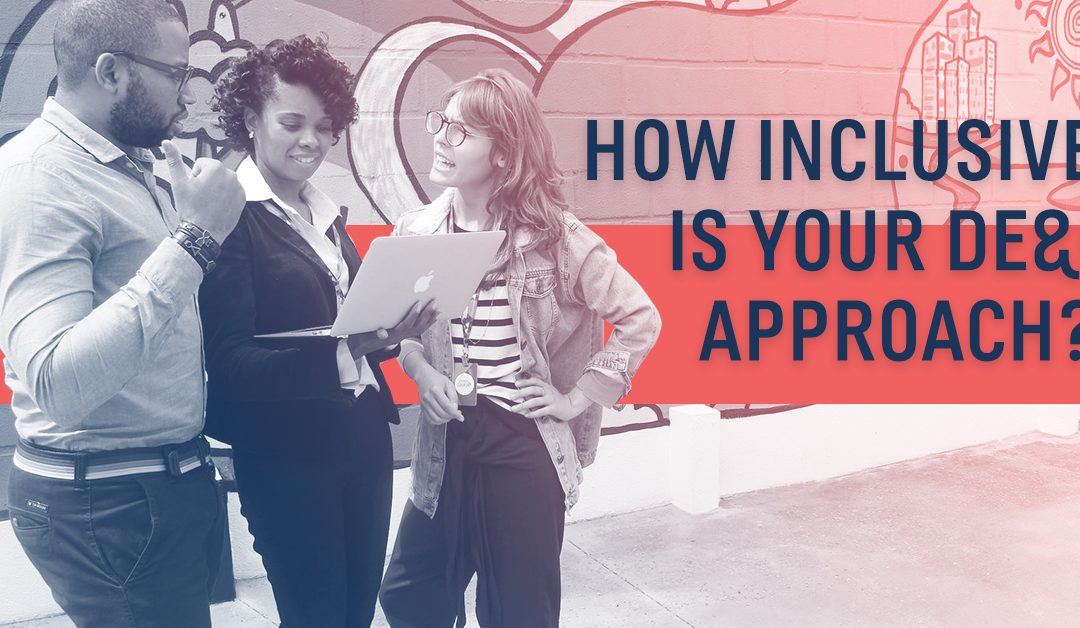When we speak about Diversity, Equity, and Inclusion (DE&I), organisations’ main initiatives are generally related to the visible classification of others. Most notably, age, culture, race, and gender. While DE&I initiatives do and should focus on the aspects above, other attributes which fall into the scope of DE&I seem to be pushed down to the bottom of the pile.
Such as:
- Orientation
- Identity
- Accessibility
- Neurodiversity
- Intersectionality
Let’s be clear here, humans are complex beings, and this is what makes us unique. When discussing DE&I, we must be clear that individuals have multiple layers and attributes that contribute to their identity. This is commonly known as intersectionality and it is formed from how individuals identify, not how others classify them.
Generally, our inherent bias focuses primarily on what we can see or choose not to see. This bias can create, feed, or facilitate positive and negative impacts on others. While most organisations now have extensive DE&I strategies, there is still a need to deep dive into other aspects that contribute to an individual’s identity.
It’s worth revisiting DE&I for what it represents.
Diversity of individuals with equitable access and inclusion for all.
How does your workplace embrace all aspects of DE&I?
In their Australian of the Year acceptance speech, Dylan Alcott intimately shared how he never saw himself represented throughout his life. He never felt included, seen, or heard for who he was. A powerful moment of his speech highlighted how the only time he saw someone ‘like me’ on TV was at the end of a car crash ad and how poorly misrepresented he was.
Over four and a half million people in Australia are living with physical or non-physical accessibility needs. Of this number, only half are given employment opportunities.
This raises the question of what organisations are doing to widen their DE&I position while creating more opportunities for individuals to contribute.
As an individual with an invisible disability who is neurodiverse, I can speak from experience about people’s workplace struggles. It’s hard. But it doesn’t have to be. In my experience, I have found that audism is something I experience daily. Being deaf, it is not clear to others that I have substantial hearing loss. I experience audism prejudice in my daily life. Layer this with an acquired processing delay, and the complexity of how I can show up as my authentic self is challenged.
The thing to note is that everyone is different. To address this need, you cannot place a cookie-cutter template or a tick box process. For real inclusion to occur, organisations need to educate themselves on what individuals need to thrive and take action. Do not make assumptions about what someone needs. Ask them, involve them, include them.
If you’re not familiar with some of the other aspects of DE&I, we have summarised them below.
Accessibility
Refers to equitable access for individuals who may identify as having a form of physical or non-physical access need. These individuals may need adjustments or inclusive modifications to support them in the workplace. Accessibility is also commonly referred to as disability.
Neurodiversity
Refers to differences in brain functioning that differ from neurotypical people. Neurodiversity grouped the categorisation of any individual diagnosed with a non-neurotypical function. Common neurodiverse functions include ADHD, ASD, Dyspraxia, Cognitive Processing, and Dyslexia (to name a few).
Intersectionality
Refers to the accumulation of multiple identity attributes for an individual. Each of these attributes intersected with another attribute. For example, I identify as a female who is deaf and neurodiverse. So, in this instance, I have three intersectional attributes.
The topic of inclusion and equitable access is very prevalent in the workplace. There are several steps employers can take to educate and understand their employees better. If you would like to speak to our team about how you can foster diversity and an equitable workforce, reach out to Red Wolf Group today!
